After lots of hard work, a derelict property reveals a hidden treasure in Tucker County.
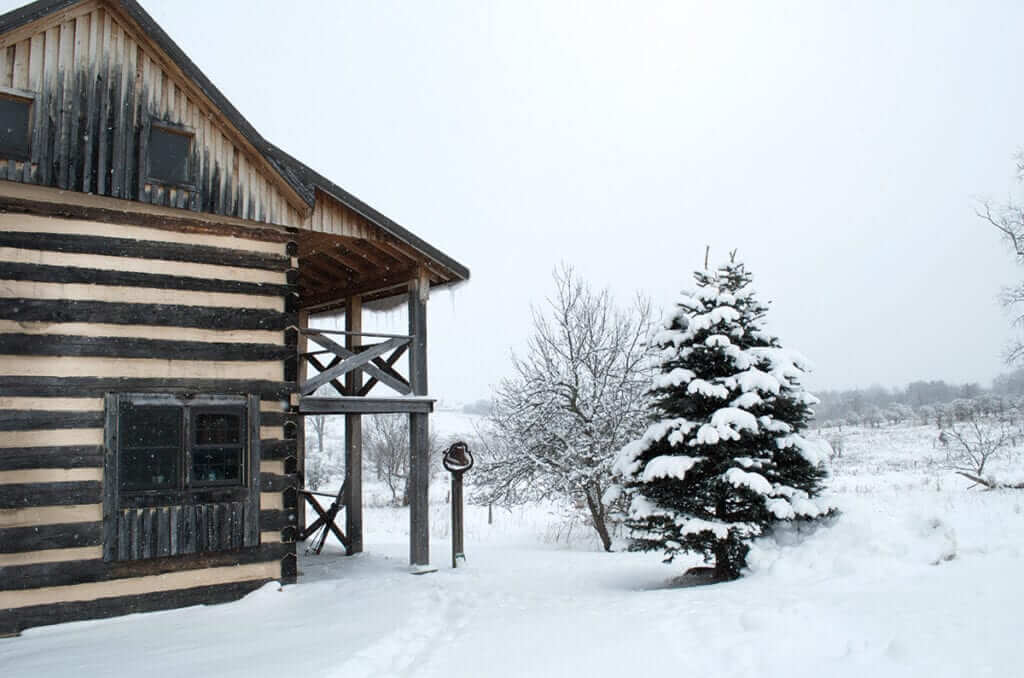
To get to the Cooper homestead, David Downs had to bushwhack. This was the late 2000s, and it had been decades since anyone lived there, and the road to the property was badly overgrown. He climbed boundary fencing and waded through tall weeds before sliding down a hillside to reach the more-than-100-year-old homestead, one of Canaan Valley’s oldest.
Downs was acting on a call he’d received from a friend and fellow real estate broker. A man in Russia was looking to buy the property, tear down the original home and barn that still stood on the land, and build a housing development. Downs’ friend wanted to know if there was anything worth salvaging in the antique buildings.
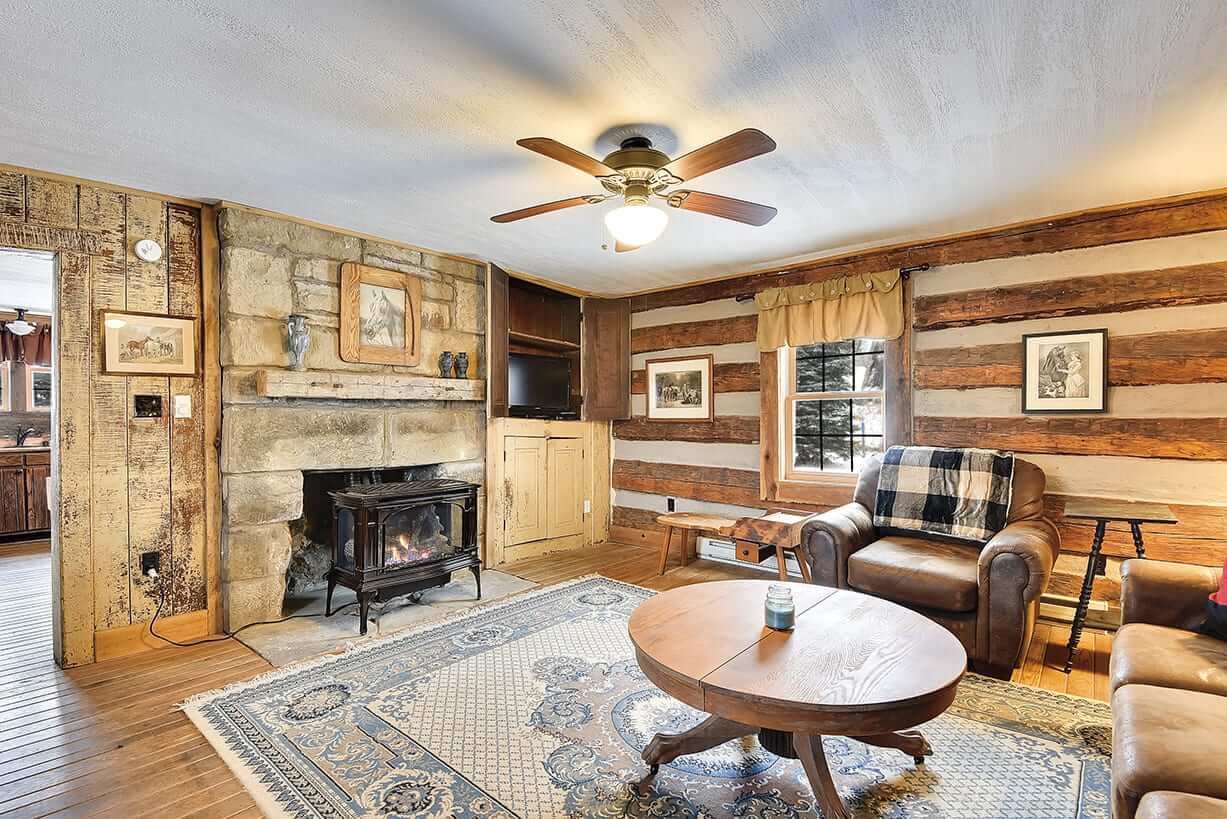
Calling Downs was an obvious choice. He was a longtime antique buyer and seller, and had already spent nearly 30 years as a developer in the Canaan Valley. He and two investment partners were the first to develop more than a thousand acres into residential property sites now referred to as Timberline. It was Downs’ idea to put a ski area there—now, Timberline Four Seasons Resort is one of the largest tourist draws for the area.
Downs began his inspection at the barn. An addition had collapsed in the front, blocking his view of what lay inside. But after he made it safely around the debris to peek into the tall structure, he could tell it was a log barn. “And from the barn you could see the side of the house. I said ‘Log barn, log house,’” Downs recalls.
He then walked down a gentle slope to reach the house. He pulled back a piece of siding and sure enough, there were logs.
The Coopers Come to Canaan
Once the railroad made it to Canaan, Henry Cooper was hopeful his investment in the rugged, wild valley would pay off. Cooper, who was one of Robert E. Lee’s bodyguards during the Civil War, moved his wife, Mary, and their seven children from Winchester, Virginia, to Canaan in 1882, according to a later written account by his daughter Myrtle.
One of the earliest families to settle in the valley, the Coopers were lured by promises of fertile soil and tales of giant, virgin timber. Cooper mortgaged his home in Winchester to purchase 300 acres of virgin timberland—at $2 an acre—in what was then known as Cortland of Canaan Valley. It’s the area that runs east of West Virginia Route 32 through Canaan along Cortland Road today.
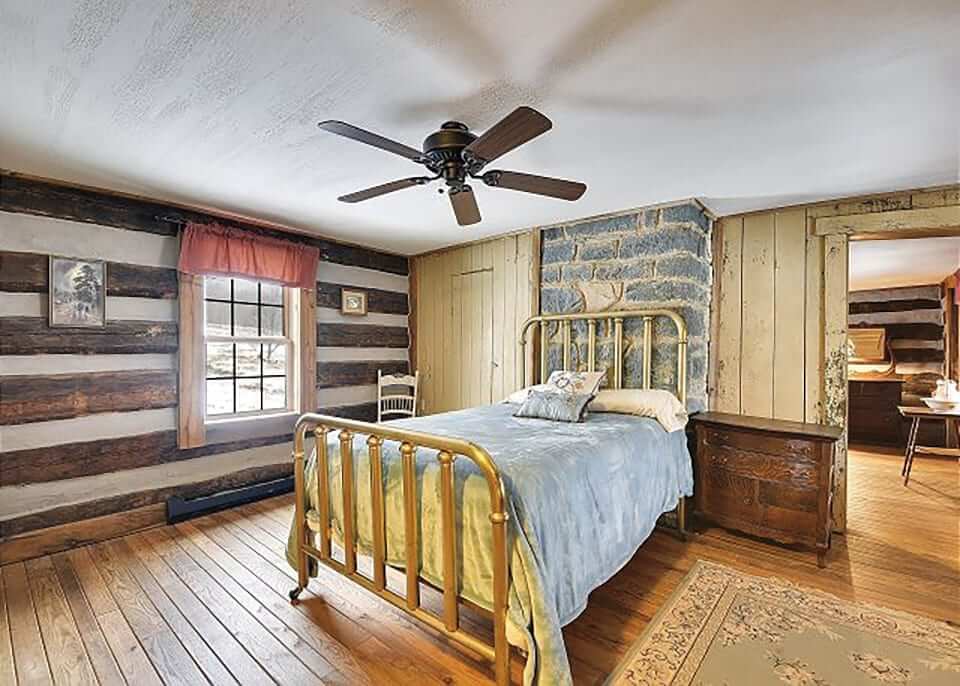
The family built a two-and-a-half-story house out of logs they cut on the property in 1883, with two rooms, a kitchen, and a living room on the first floor, two bedrooms on the second floor, and an attic. They seated their home next to a steady stream, where they built a spring house for keeping food cold and raised trout that they trained to eat peanut butter from their fingertips. The barn was constructed around the same time.
The Coopers turned many acres around their house into farmland. They raised livestock like chickens and milking cows and cultivated a rich orchard with plums, berries, currants, and apple trees. Growing up on a large farm in the Valley, Myrtle wrote some of her favorite things were “the spring flowers, the swing in the barn, the young calves and colts, also little lambs.”
At night, Myrtle wrote, the family would cook around a big stove in the kitchen and sit at a large fire in the living room as Henry read passages from the Bible. All of the kids and adults, 10 in all, shared the second floor and the attic for sleeping.
Shortly after the Coopers arrived, the town of Davis, located less than 10 miles away, established itself as a prosperous logging community. Men working for the railroads and timber companies began entering Canaan Valley to access its virgin timber.
By the mid-1890s, Henry Cooper had profited so greatly from the timber industry that he decided to fund the construction of a Lutheran church near his home, in Cortland. He also used his assets to build a two-story addition to his home in 1895, connecting both sections to make “a large, roomy house,” as Myrtle described it.
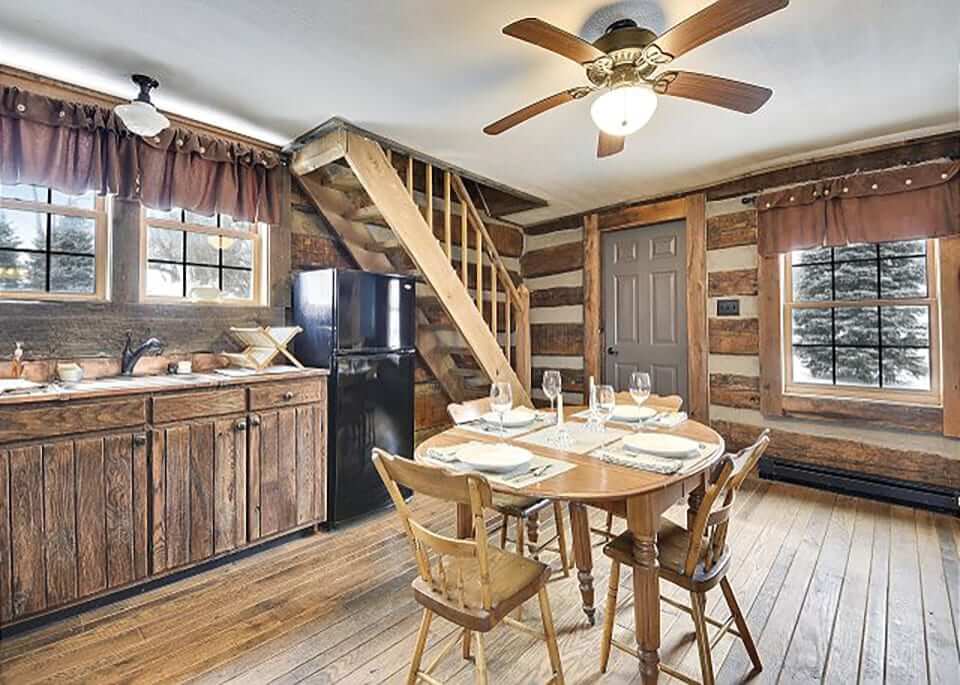
Buying Buried Treasure
Downs knew about the Cooper Homestead long before his friend called. He just hadn’t thought much of it. “I’d watched it all my life up here, never paying any attention to it,” Downs says. “It was just derelict, and I knew nobody lived in it.”
He started paying attention once he discovered that the old abandoned house was actually a buried treasure. When the deal with the Russian developer fell through, Downs started his own negotiations—not to develop the property, but to restore as best he could.
He purchased five acres that included the house and the barn, then hired a local contractor. The 1895 addition was too damaged to be repaired, but the original house had a strong foundation and sturdy roofline worth saving.
Downs worked hard to preserve as much of the original house as possible, while also making arrangements for modern amenities. The barn and home’s logs are all intact, and the kitchen wall and cupboard are painted the same deep green color that the Coopers picked out. But Downs took the liberty of building a small addition to the first floor with a full bath and laundry room.
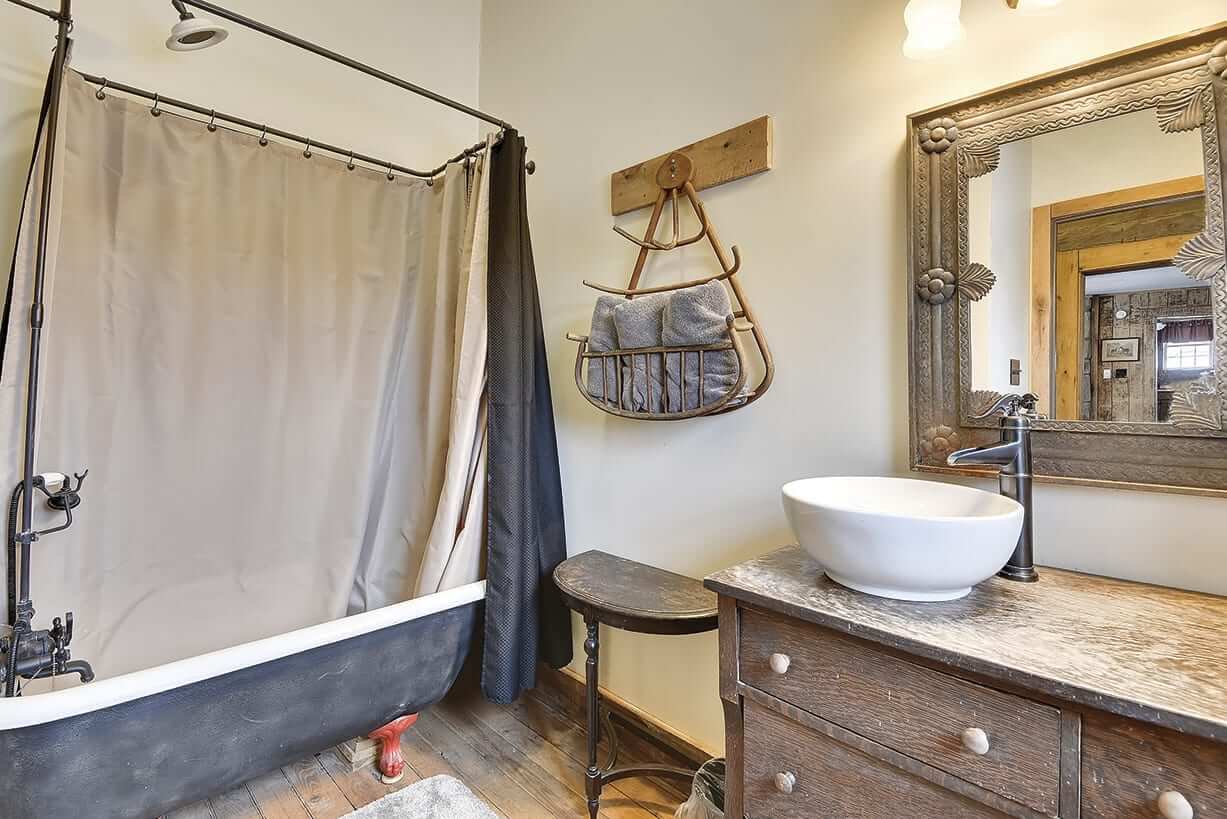
He says it was one of the hardest restoration projects he’s ever attempted. The work took two years from start to finish. But thanks to that investment, the Cooper Homestead is the oldest standing dwelling in Canaan Valley that is still livable. And thanks to current owners Marti and Ben Neustadt, anyone can call the homestead home—for a couple days, at least.
Images courtesy of Best of Canaan Real Estate Sales and Vacation Rentals










Leave a Reply